Dubai’s extreme heat, high humidity, and frequent dust storms make regular HVAC care essential for uninterrupted comfort and energy efficiency. This guide explains how Dubai’s climate impacts HVAC performance and outlines a systematic maintenance approach to prevent breakdowns, reduce energy costs, and extend system lifespan. From filter cleaning and coil inspections to humidity control and professional servicing, these essential HVAC maintenance tips help property owners maintain reliable cooling, improve indoor air quality, and ensure long-term performance even during peak summer conditions in Dubai.
Understanding Dubai’s Extreme Climate and Its Impact on HVAC Systems
Dubai weather is uniquely challenging for HVAC systems. High temperatures with high humidity levels, plus dust storms once in a while, make for a very tough time away from any cooling system trying to get the work done.
- Extreme Temperatures and Continuous Operation: Summer temperatures often climb to 40°C (104°F) and beyond. HVAC systems have to work all day long to produce enough cool air in the houses and offices to maintain the desired comforts. Such constant operations lead to the wear and tear of components faster; hence, it is more important than usual to get maintenance done. Without it, you may find your system breaking down right in peak summer when cooling is most needed.
- High Humidity: Humidity levels in Dubai can even skyrocket beyond 90% during the summer months. High humidity adds to the feeling of heat, thereby forcing an HVAC system to work harder in pulling moisture out of the indoor air. This intensity of operation can cause a loss of efficiency, unnecessarily hike energy consumption, or encourage mold and mildew growth inside the unit and ductwork.
- Dust, Sand, and Air Quality Challenges: Dust storms occur frequently in Dubai so dust and sand can find their way into your HVAC system with full ease and free entry. This will clog the air filters, coat interior surface areas, and reduce its efficiency. Dust and debris buildup decreases indoor air quality over time, creating allergies and respiratory discomfort in the occupants.
Essential Maintenance Tips for HVAC Systems in Dubai’s Extreme Climate
Dubai’s extreme heat and humidity place enormous stress on cooling systems, making regular care non-negotiable. Following Essential Maintenance Tips helps property owners avoid breakdowns, reduce energy bills, and ensure long-term comfort. These HVAC maintenance tips Dubai experts recommend are designed to keep systems efficient year-round. Proper HVAC systems maintenance Dubai practices are especially important when applying HVAC tips for Dubai weather to maintain performance and reliability and to maintain HVAC systems in Dubai hot weather effectively.
- Adopt a Systematic Maintenance Approach: A structured plan is the foundation of reliable cooling. One of the most overlooked Essential Maintenance Tips is creating a seasonal checklist and maintenance schedule. These Essential Maintenance Tips ensure inspections are not delayed during peak summer demand. Professional HVAC maintenance tips Dubai emphasize preventive servicing to maintain HVAC systems in Dubai hot weather and avoid emergency repairs.
- Clean and Replace Air Filters Regularly: Dirty filters restrict airflow and increase energy consumption. Among the most critical Essential Maintenance Tips, filter cleaning should be done monthly during summer. Consistent Essential Maintenance Tips like this improve indoor air quality and support efficient HVAC systems maintenance Dubai operations. These steps align perfectly with practical HVAC tips for Dubai weather, where dust accumulation is common.
- Inspect Coils and Refrigerant Levels: Routine inspections form another key part of Essential Maintenance Tips. Certified technicians offering HVAC maintenance tips Dubai recommend coil cleaning and refrigerant checks to improve cooling efficiency. Proper HVAC systems maintenance Dubai ensures systems can reliably maintain HVAC systems in Dubai hot weather without overloading components.
- Optimize Energy Efficiency: Energy optimization is among the smartest Essential Maintenance Tips for Dubai buildings. Sealing ducts, upgrading thermostats, and monitoring energy usage are all part of advanced Essential Maintenance Tips. These strategies complement HVAC tips for Dubai weather and enhance overall HVAC systems maintenance Dubai performance.
- Follow a Preventive Maintenance Checklist: A preventive checklist is vital. Key Essential Maintenance Tips include scheduling biannual inspections, testing controls, and lubricating moving parts. Repeating these Essential Maintenance Tips supports professional HVAC maintenance tips Dubai standards and helps maintain HVAC systems in Dubai hot weather efficiently.
Typical Routine Maintenance Tasks for HVAC: What Must Be Done Regularly
Maintenance of the HVAC system can involve a little bit of do-it-yourself, things that help can be sourced, and a little bit of professional servicing. These are tasks you should definitely be doing regularly.
- Cleaning and Changing Filters: The air filters are the primary defense mechanism that dust and dirt particles must undergo when entering the HVAC system. Due to the dusty ambiance of Dubai, filters tend to clog very quickly. A dirty calcified one could almost act as a very fine barrier to airflow and thus significantly affect cooling and even encourage overheating. Therefore, one must inspect these filters on a monthly basis and clean or replace them every one to three months, depending on their use and level of air impurity. Good filters keep the indoor air quality good and reduce the strain on the system.
- Inspecting the System Components Periodically: Check for wear, leaks, or damage in your HVAC system. Try to assess water pooling around the unit, unusual noises, or weak airflow. Early diagnosis of malfunctioning aspects like refrigerant leaks, electrical faults, or worn belts can save you from expensive repairs. While technicians can perform a more detailed inspection at their scheduled maintenance, you do well to do a periodic inspection yourself.
- Coil and Fan Cleaning: The evaporator and condenser coils are paramount to heat exchange. Over time, these coils could be covered with dust and other filth, inhibiting their ability to cool efficiently. Dirty coils force the system to work harder, thereby consuming more energy and raising the chances of failure. Coil and fan cleaning is recommended once or preferably twice every year, before the onset of the summer and winter seasons.
Common HVAC Problems in Dubai
Like any other city on this side of the world, Dubai enjoys a unique atmospheric constitution. In weather from here, it is wise to understand the common problems of HVAC systems and also the things you can do to remedy these problems. You’d save time, money, and discomfort.
- Condensation and Water Leakage: However, when excessive humidity occurs, it causes condensation on the HVAC unit. Keep the condensate drain lines clear to avoid blockage. In case you see water pooling around your unit, do not hesitate to call a professional right away to check and fix the problem.
- Mold and Milach Expedition: On the other hand, moisture mixed with dust brought forth the storm of mold and mildew in an HVAC-system-and-duct combination. The key to prevention might be regular cleaning and the use of good-quality filters while making sure enough humidity is present. If you ever smelled mold or even saw mold, it’s time for professional cleaning.
- Inefficient Cooling and Hot Spots: If some rooms cool down nicely while others do not or if your system cannot maintain the desired temperature, improper insulation of your home, duct leaks, or a malfunctioning thermostat could be at play. Insulate your home adequately, seal all gaps around doors and windows, get your ducts checked for leaks, and finally, make sure your thermostat is calibrated to provide accurate temperature control.
Improving Indoor Air Quality and Comfort
Practically as important as cooling in the Dubai climate to improve air quality indoors. HVAC systems are very much vital in providing a healthy and comfortable living environment.
- Use High-Efficiency Air Filters: Buy filters having a High MERV (Minimum Efficiency Reporting Value). These are efficient in collecting dust, pollen, and allergens, and thus, the air gets cleaner and some incidences of respiratory problems are reduced. From time to time, change the filter to retain the highest efficiency.
- Control Indoor Humidity: Too much humidity can become uncomfortable, generate mold, and cause some level of energy inefficiency. Use the humidity control option available in your HVAC device, or install a dehumidifier, to control the indoor humidity levels to somewhere between 40 to 60 percent. This will keep the levels safe for health as well as for the smooth operation of your system.
- Maintain Adequate Ventilation: To expel stagnant air and usher in fresh air, ventilation is a must. Ensure the provision for ventilation is adequately covered by your HVAC system, particularly in very tightly sealed buildings. This will wash away indoor pollutants while leaving a fresh feeling in the air.
- Consider Air Purifiers and UV Lights: Some units that will give you additional protection against microbes and allergens can be installed inside the HVAC system as standalone air purifiers or UV lights. These are devices that kill bacteria, viruses, and mold spores that could affect indoor air quality.
Draw Your Window Coverings and Insulate
Keep out heat with blinds, curtains, and window films. Another way to stop heat inside is through insulation applied to your home or office.
- Schedule Maintenance for the Off-Season Periods: The most advantageous months to have your system professionally serviced are said to be spring and fall, so as to prepare the system for extreme weather demands in summer and winter. This would lessen the likelihood of breakdowns and signal disturbances during maximum usage.
- Maintenance Contracts Offered by HVAC Firms: Most HVAC companies in Dubai offer annual maintenance contracts. These contracts include regular inspections, cleaning service, priority service, and discounted rates on repairs. A maintenance contract helps you save money while giving you comfort knowing that your system is always in perfect shape.
When to Call HVAC Professional Services
While maybe some HVAC maintenance tasks can be done by homeowners, most remain firmly in the realm of trained professionals.
- Annual Professional Inspection: At least once every year, you should have a comprehensive inspection performed; a technician can check a system for hidden problems, clean components that are hard to reach, and generally make sure that your system is operating safely and efficiently. Check out our latest blog post on The Benefits of Installing a Programmable or Smart Thermostat
- Professional Repairs and Upgrades:If the system is aging, inefficient, or coming to frequent breakdowns, a technician may make the necessary repairs or suggest the installation of an all-new, energy-efficient model. Modern systems, after all, make for cheaper bills and a more comfortable atmosphere.
- Duct Cleaning and Sanitization: Cleaning duct systems remove dust, mold, and allergens that build up over time, bettering the system’s efficiency and indoor air quality. This is particularly important in the dusty environs of Dubai.
- Emergency Repairs and Preparation Before a Sandstorm: HVAC systems are on the verge of failure during sandstorms or any severe weather. Professionals can assist you in preparing your system and responding quickly to any emergency to minimize downtime and discomfort.
Conclusion
Regular HVAC maintenance is not a suggestion but a must-have condition for living in Dubai’s rough climate. These tips are essential to make sure that your system delivers efficient, long-lasting, clean, and comfortable air all year round. Don’t wait for an emergency or an energy cost hike to call one of us for expert HVAC maintenance, repairs, or even advice. Stay cool, comfortable, and worry-free with us!


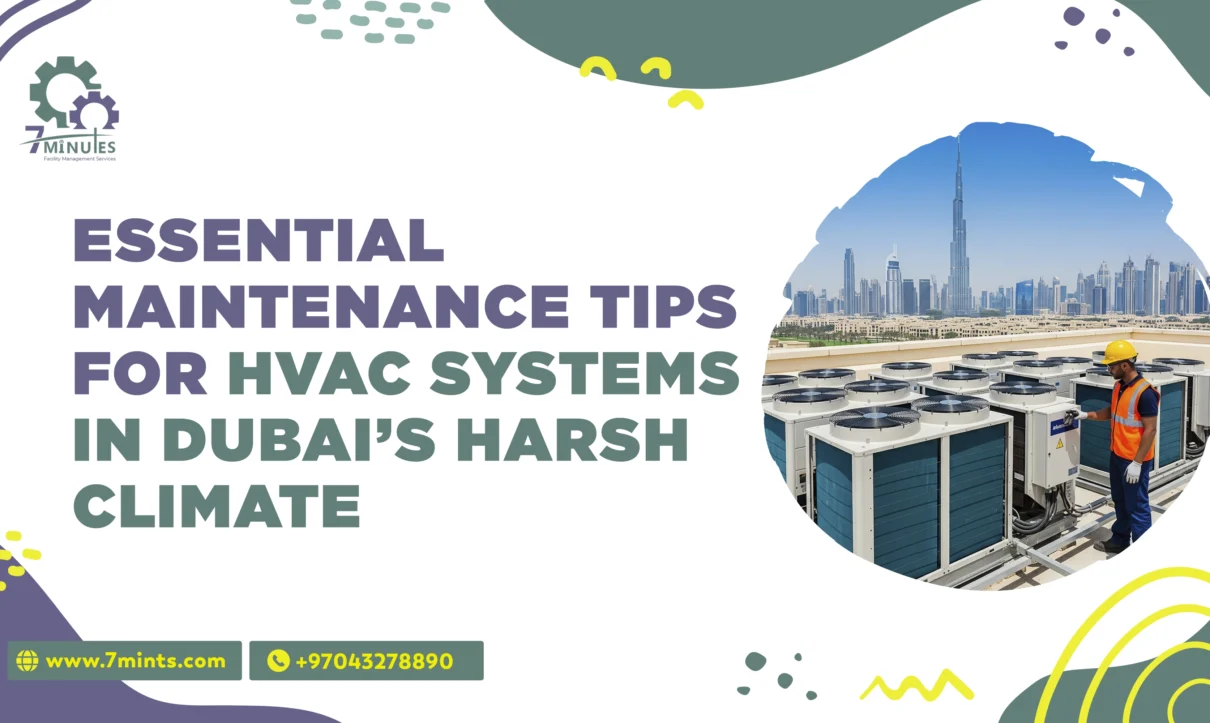
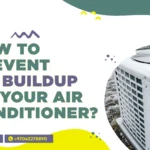


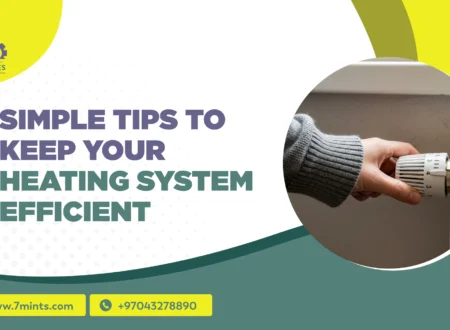
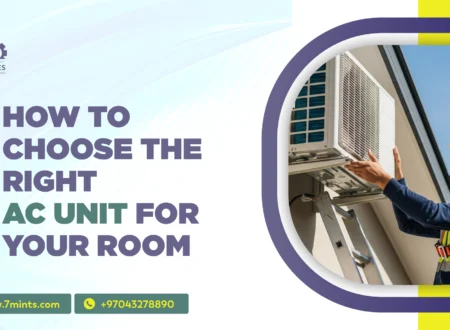
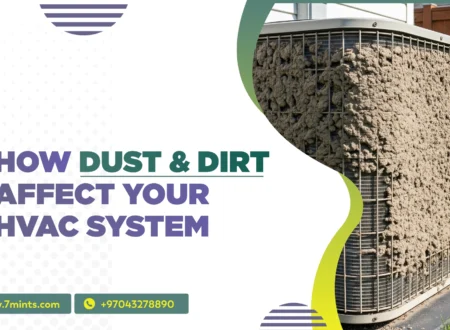
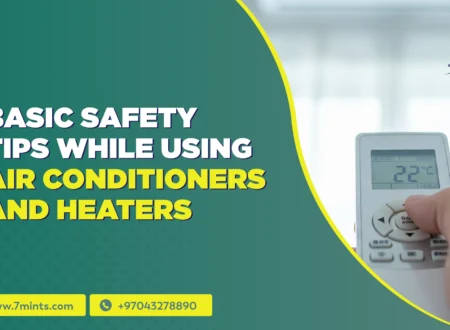
1 Comment
Comments are closed.